FIA clarifies brake bias rule amid Red Bull rumours
The FIA has clarified that no F1 team, including Red Bull, has been using a banned asymmetrical braking system.
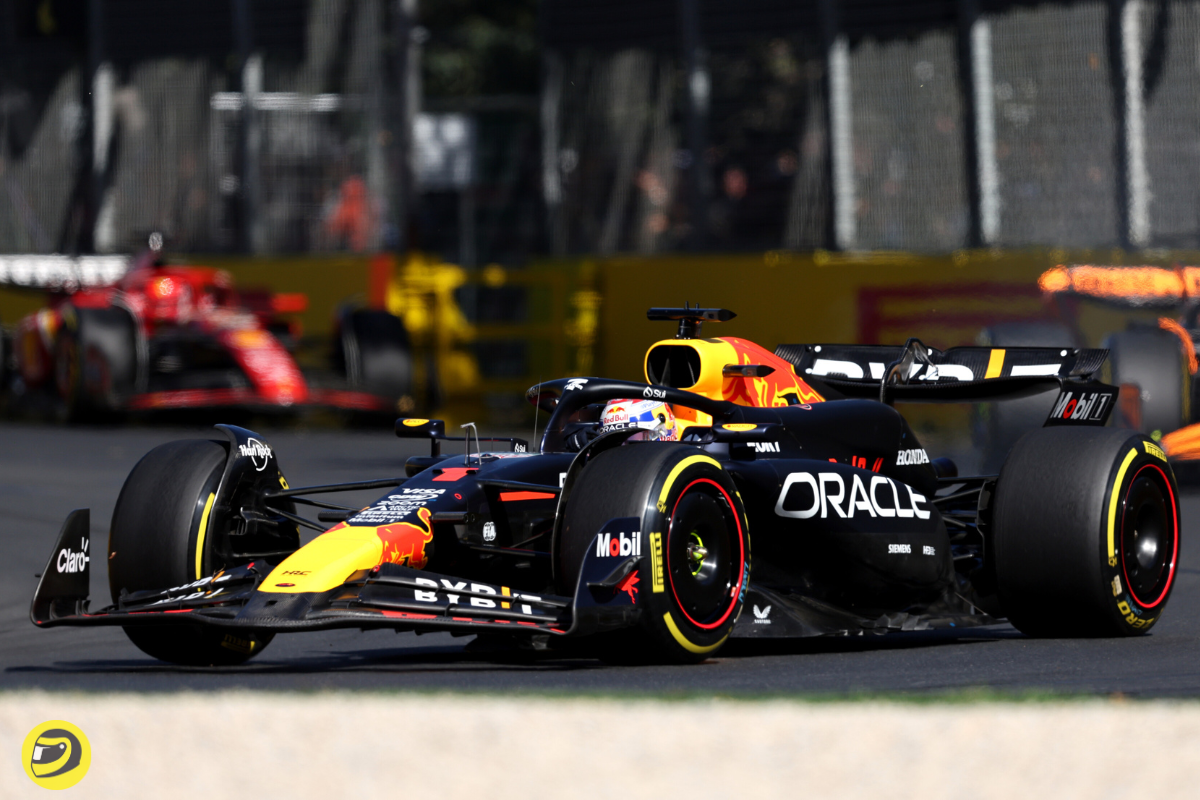
The FIA has moved swiftly to quash unfounded rumors linking Red Bull to the use of a banned braking system, following recent changes to Formula 1's technical regulations.
The speculation, which had gained traction in online communities, suggested that the dominant team might have been employing an asymmetrical braking setup prior to the Miami Grand Prix.
Setting the Record Straight
In a clear-cut statement, an FIA spokesperson put an end to the swirling rumors, telling Autosport:

"There is no truth that any team was using such a system."
This unequivocal response comes after the World Motor Sport Council ratified changes to the technical regulations over the summer break, explicitly outlawing asymmetrical braking torques.
The modification to Article 11.1.2 of the technical regulations, which took effect on July 31st, added specific language to prevent any potential exploitation of brake systems.
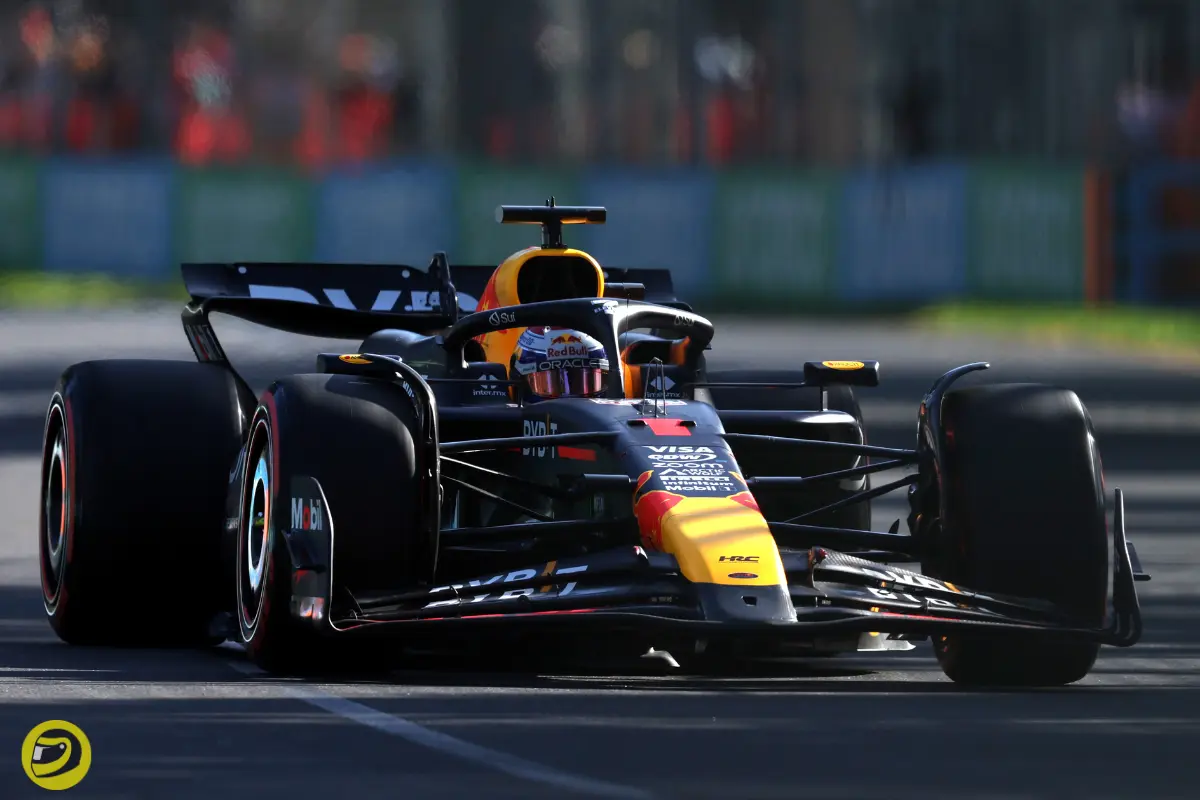
The new text states: "Any system or mechanism which can produce systematically or intentionally, asymmetric braking torques for a given axle is forbidden."
Preemptive Measures
Rather than responding to current malpractice, the FIA clarified that the rule change was a preemptive measure.
The governing body explained that while such systems would have already been illegal under the 2026 regulations, the recent amendment serves to provide clearer guidance for teams in the interim period.

This proactive approach by the FIA underscores their commitment to maintaining a level playing field and preventing any potential gray areas in the regulations from being exploited.
Red Bull's Performance Under Scrutiny
The timing of the rule clarification led to widespread speculation about Red Bull's dominant performance in the first half of the season.
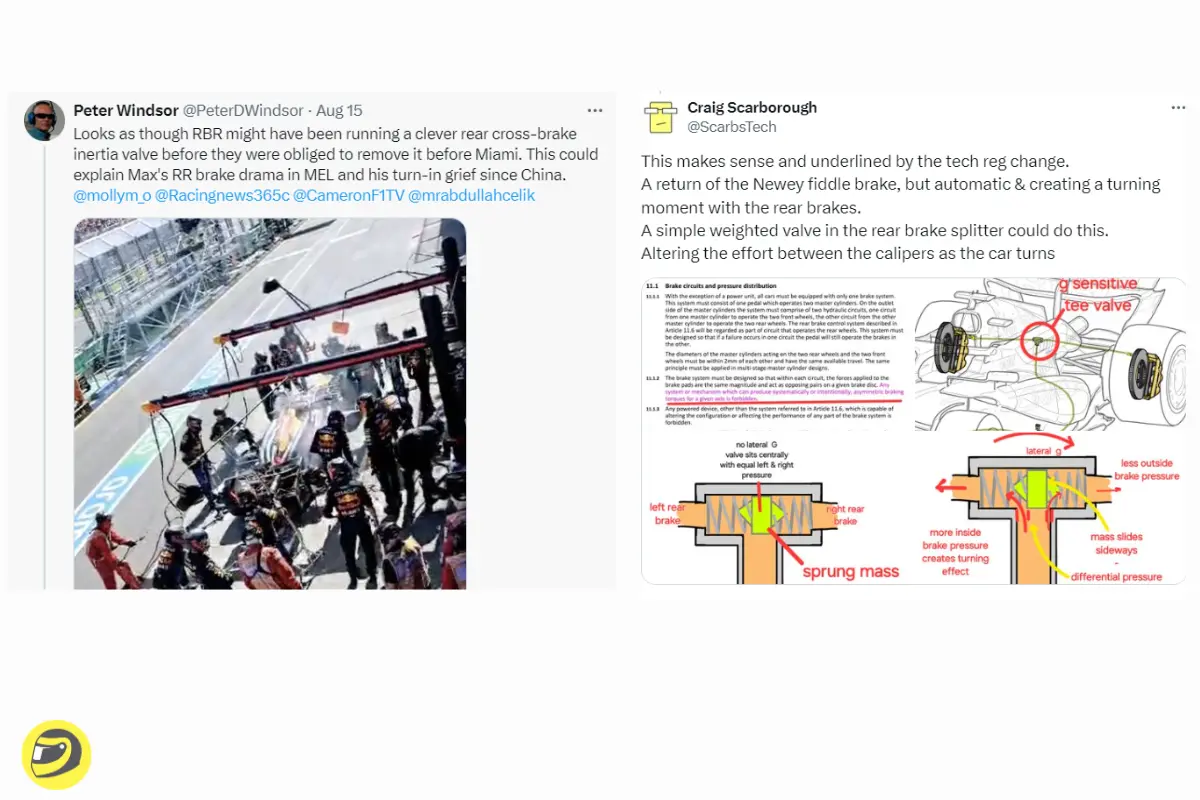
Some observers drew connections between the regulation change and the apparent closing of the performance gap by teams like McLaren and Mercedes from the Miami Grand Prix onwards.
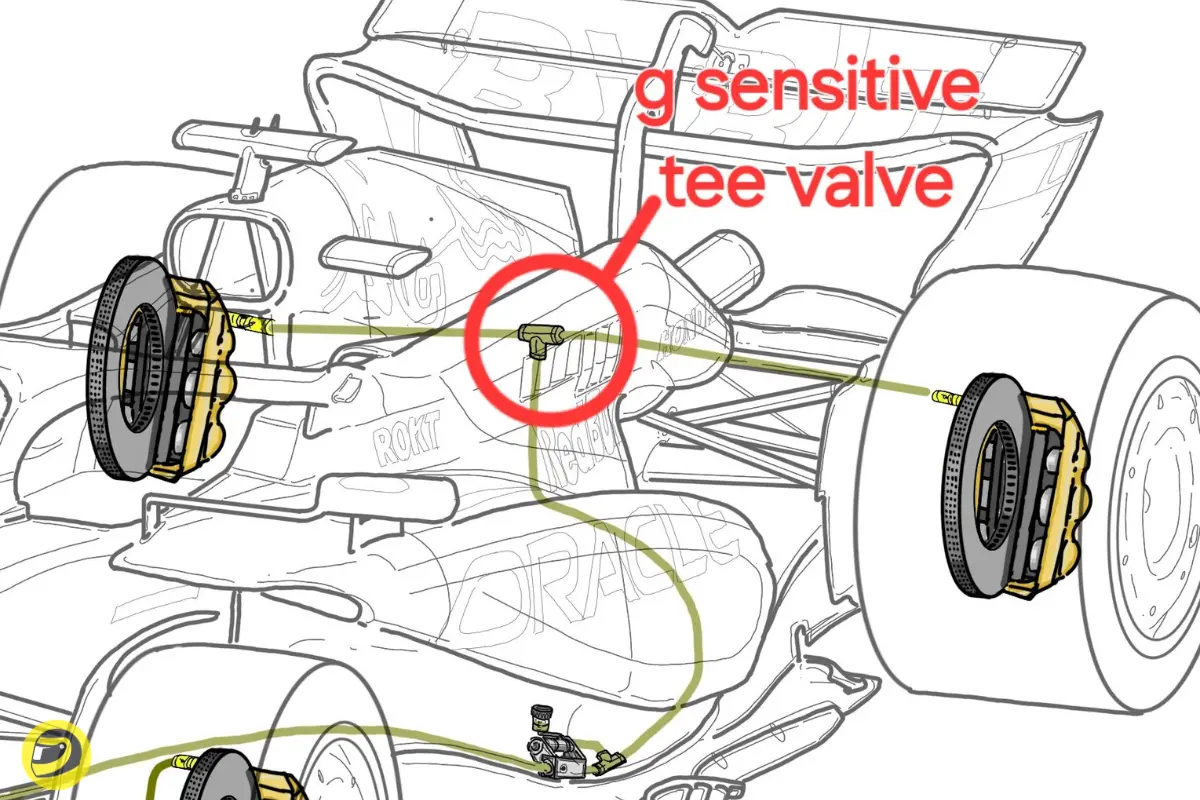
However, given that the rule change only came into effect on July 31st, it could not have impacted Red Bull's performances prior to this date.
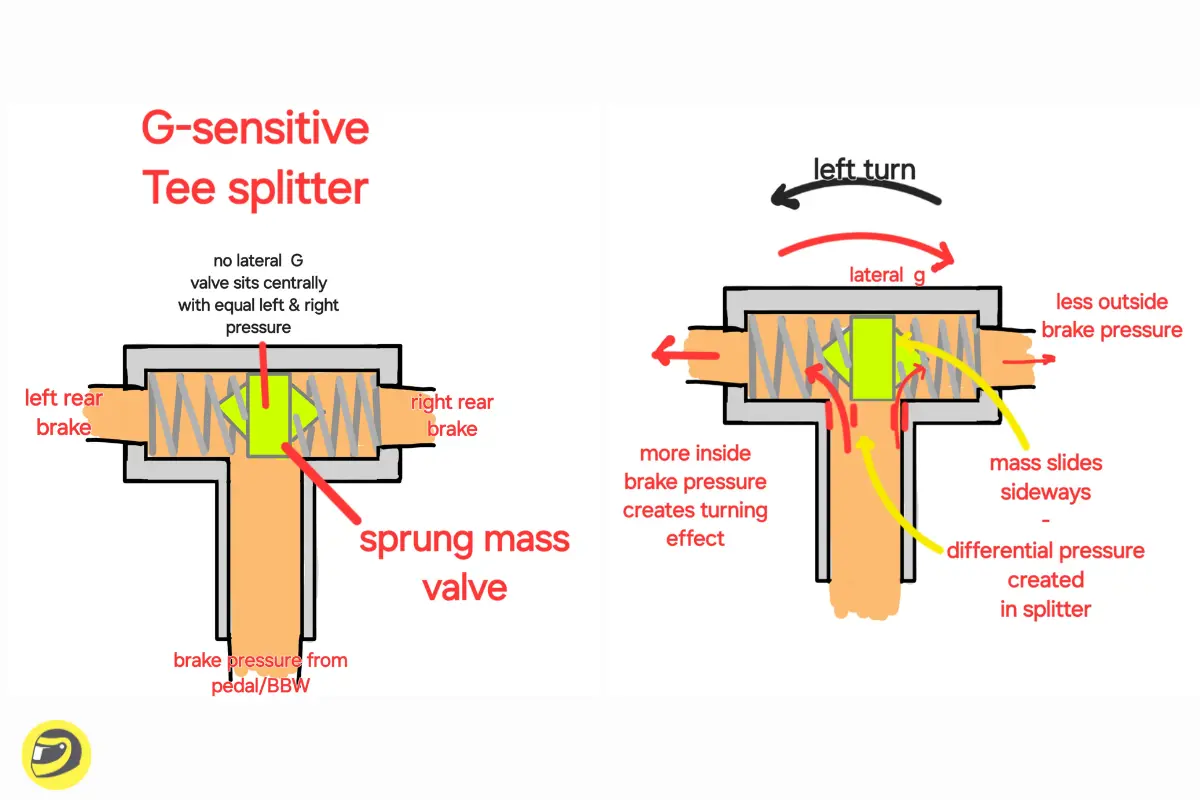
This timeline effectively debunks theories suggesting a correlation between the rule clarification and Red Bull's relative performance dip.
Pushback Against Speculation
The unfounded nature of these rumors drew criticism from within the F1 community.
Red Bull engineer Calum Nicholas took to social media platform X to dismiss the speculation as "bull****."
Nicholas went further, urging fans and pundits to give credit where it's due:
"The only reason I care about this stuff is because really, people should just be giving the other teams the credit they deserve for putting in the work and catching up. Not everything has to be some big conspiracy."
Historical Context
While the current speculation has been debunked, it's worth noting that F1 has a history of innovative braking systems pushing the boundaries of regulations.
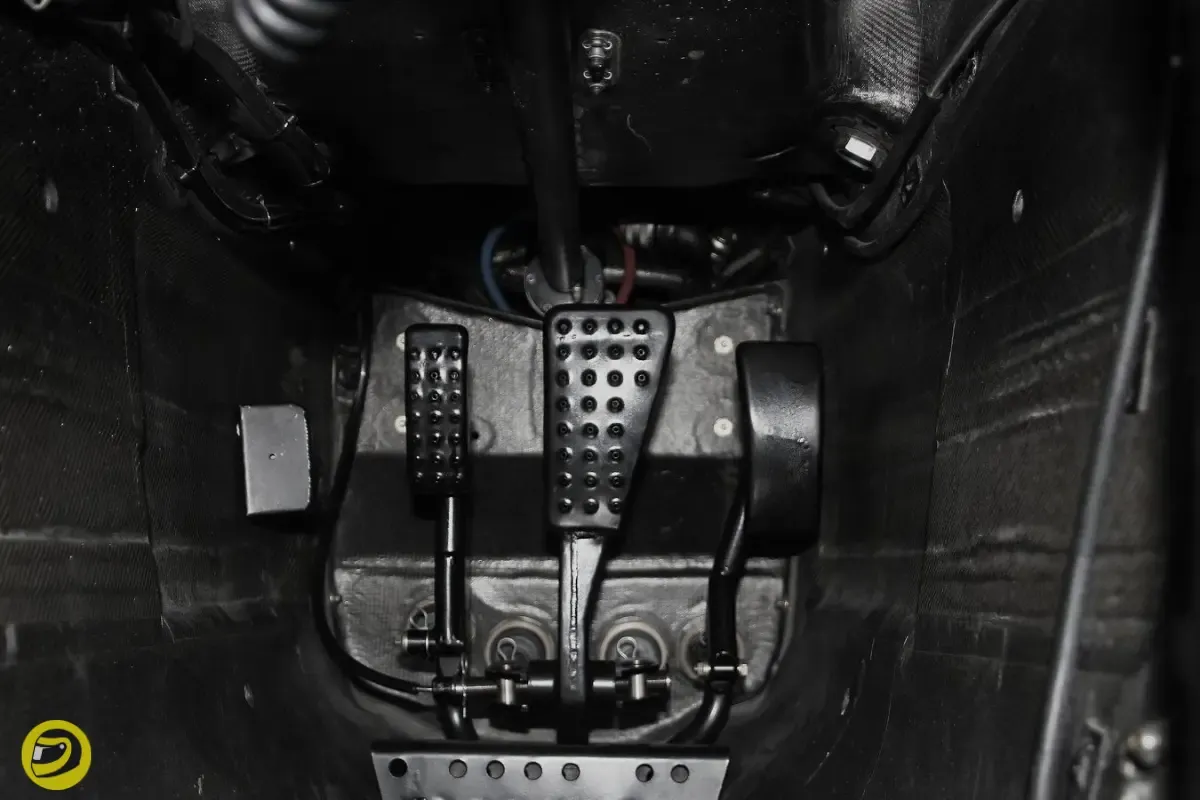
McLaren's 'brake steer' system in the 1990s stands as a prime example of engineering ingenuity that was eventually banned by the FIA.




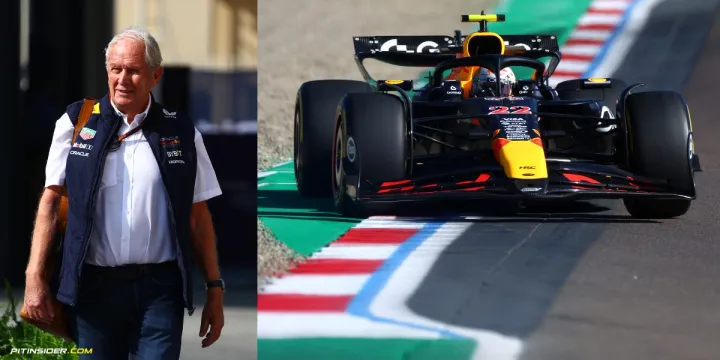
Comments ()